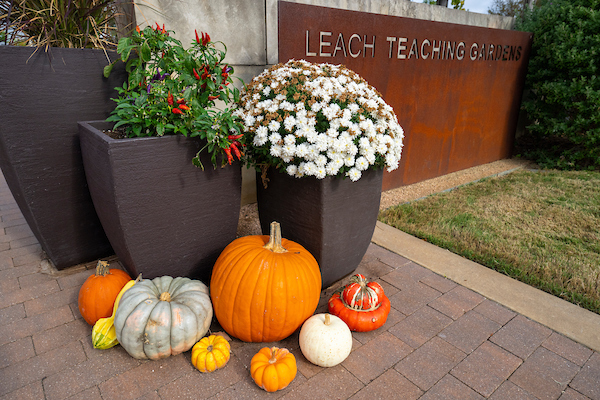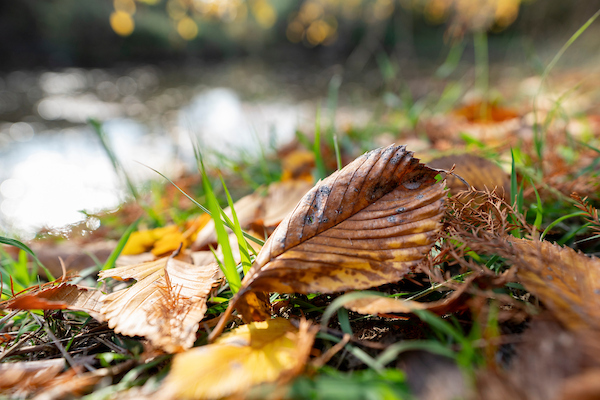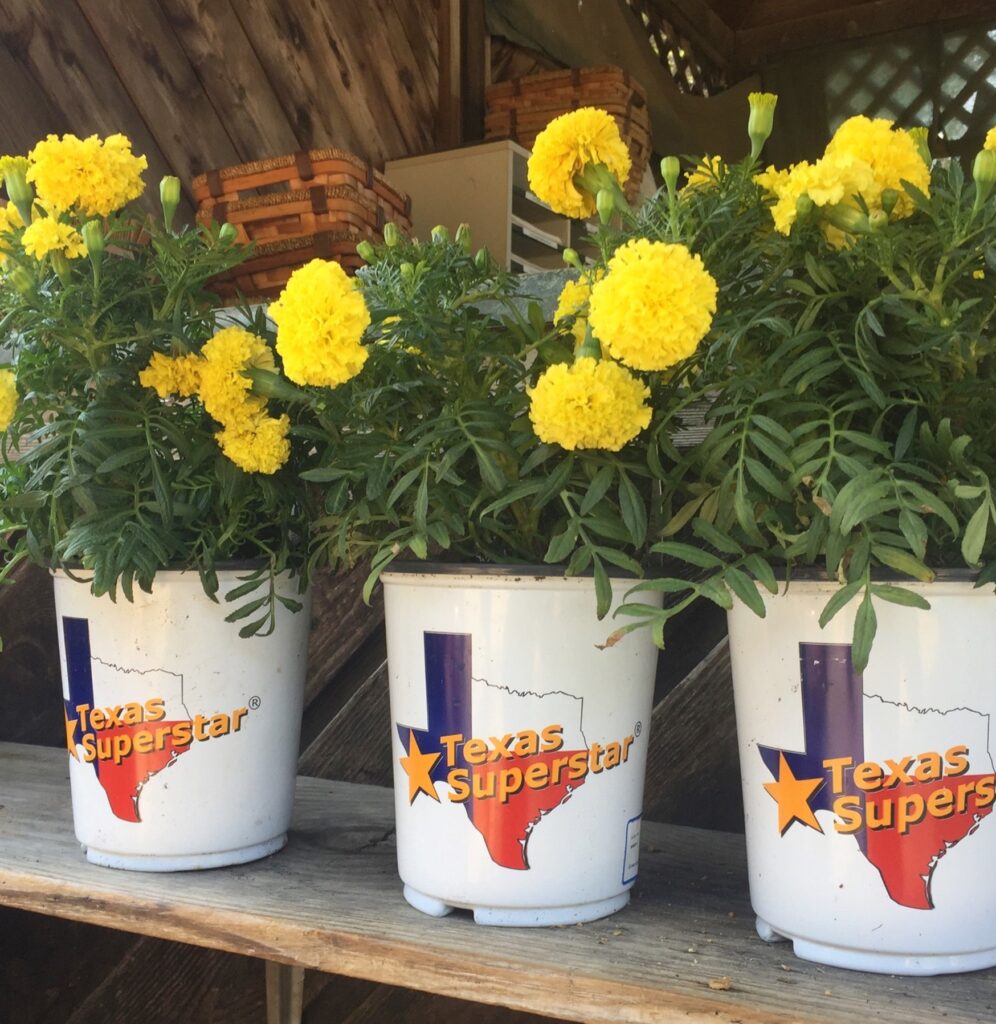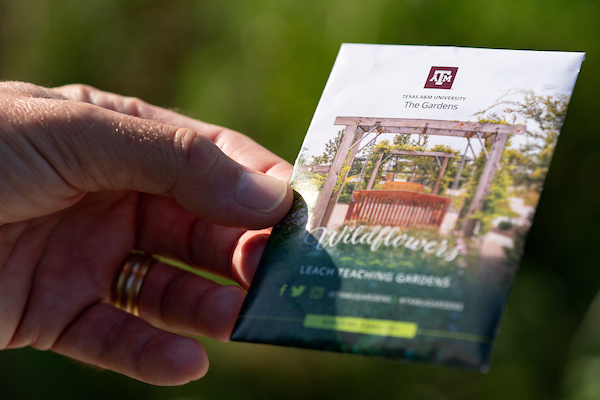Prepare your garden for the holiday season
AgriLife Extension October Garden Guide

Now is the time to give extra care to the plants you’d like to showcase during the upcoming autumn and winter holidays, according to a Texas A&M AgriLife Extension Service expert.
“Now that fall has arrived, it is time to look at your garden and think ahead to the holiday season,” said Larry Stein, Ph.D., AgriLife Extension horticulture specialist and professor in the Texas A&M College of Agriculture and Life Sciences Department of Horticultural Sciences, Uvalde.
Use what is in the garden
Stein encouraged Texans to use what they already have in their gardens for fall and winter décor and ornamental displays.
“Carefully harvest material for dried arrangements at this time,” he said. “Choose cockscomb, flowering artemisia, mature okra pods, flowering oregano stalks and others to enhance your fall and winter bouquets.”
Winterize your holly, care for Christmas cactus
Plants you want to use as winter décor may need extra care to make it to December.
Keep in mind that holly plants with heavy fruit sets often suffer from a fertilizer deficiency. Applying complete fertilizer in late October can help keep your plant in prime shape for December and provide the plant with a head start for next spring.
Keep Christmas cactus in a sunny spot where night temperatures can be kept below 65 degrees. Buds will drop if you allow night temperatures to go above 70 degrees or if the plant becomes excessively dry, he said. They should also be kept in total darkness from 5 p.m. until 8 a.m. for about 30 days in October to initiate flowering.
Maintain moisture to maintain leaves

Stein said it is essential to maintain leaves on plants until frost since the early drop of leaves does not allow for food storage for the plant to protect against winter damage.
“I know we say it repeatedly, but if lack of water is an issue in your region of Texas, prioritize the most valuable plants in your landscape,” Stein said. “We will hopefully get some nice rains in the upcoming months, but you need to keep your plants alive until then.”
Plan on buying and planting bulbs soon
October through November is an excellent time to purchase bulbs while you still have a good selection in the garden center. They may be planted at any time, except for tulips and hyacinths.
Chill tulip and hyacinth bulbs in the refrigerator until mid- or late-December before planting. The lower part of the refrigerator is best. Do not leave bulbs in airtight plastic bags during refrigerated storage, Stein said.
Plant bulbs in well-prepared beds so the bulb’s base is at a depth three times its diameter. In sandy soil, set slightly deeper and slightly shallower in clay soils.
Plant of the month: Mari-mum

The plant of the month is the mari-mum, better known as large-flowered marigolds. Although mums and chrysanthemums are typically the flowers used for religious holidays in November, including All Souls and All Saints Day as well as Day of the Dead, or Dia de los Muertos, large, flowered marigolds usually will perform much better. Select mari-mum plants with flower buds, but not open flowers, as such plants will usually outperform those already in bloom.
Designated a Texas Superstar, these large-flowered hybrid marigolds can also take the place of chrysanthemums in landscapes. These plants have blooms with similar floral appearance to chrysanthemums and provide a punch of color. The flowers last two to three times longer than chrysanthemums, are relatively inexpensive and don’t require constant pinching and pruning.
October gardening tips
Collect leaves for compost
Be sure to have extra soil available so that each 6-inch layer of leaves may be covered with several inches of soil. Always wet each layer thoroughly before adding soil. Add about 1 pound of a complete lawn or garden fertilizer to each layer of leaves to provide the necessary nitrogen for decomposition.
Add pansies for a pop of color
Prepare beds for planting pansies when they become available at the garden centers. They need well-drained soil and exposure to at least a half-day of sun. It is best to use started plants, as seeds are difficult to handle. Remember that pansies are highly desired by browsing deer and will need protection.
Dig next year’s tubers
If you plan to save caladium tubers for 2025, dig them in late October, and allow them to dry in a dark, well-ventilated area. After seven to 10 days, remove the leaves and dirt and pack them in dry peat moss, vermiculite or similar material for storage. Pack tubers so they do not touch each other, and dust them with an all-purpose fungicide. Place your storage container where the temperature won’t drop below 50 degrees.
Prevent next year’s pests
October is a good time to reduce the insect and disease potential in next year’s garden. Clean up the garden by removing all annuals that have completed their life cycle. Remove the tops of all herbaceous perennials that are done flowering or as soon as frost kills their leaves.
Plant wildflowers for spring blooms
Now is a great time to scatter wildflower seeds; remember to put them in sunny locations. Also, since wildflowers could technically be called weeds, you will have to remove other weeds from around them for them to get established.






